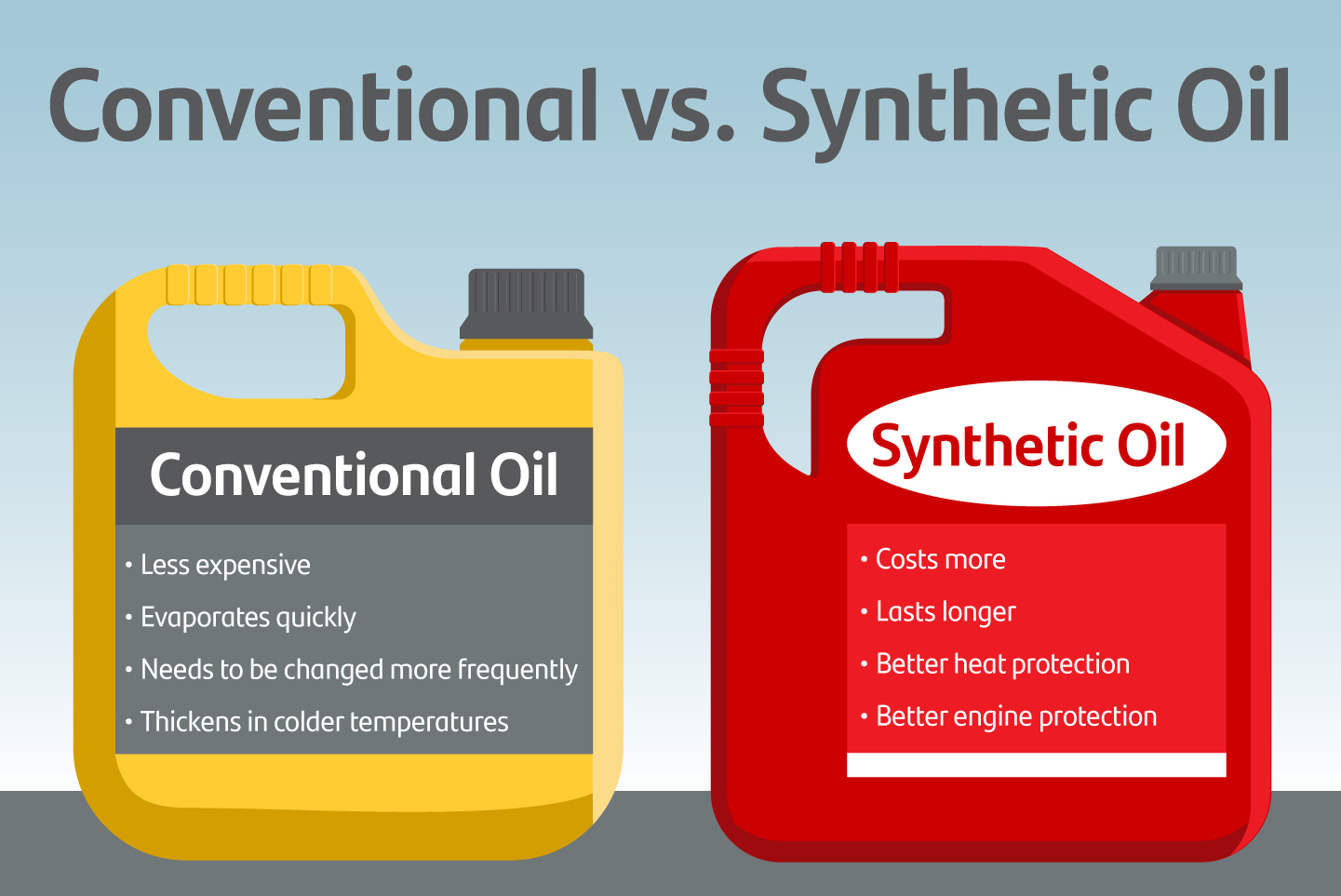
Regular oil changes are something every car owner must do. Oil is necessary to keep your engine running smoothly and efficiently. Specifically, oil:
• Lubricates engine parts to reduce wear and tear
• Helps regulate engine temperature
• Keeps engines clean
Changing your oil helps remove debris and replenishes the additives. If you don’t change your motor oil, sludge will build up, causing wear on your engine and reducing your vehicle’s performance.
Motor oil’s composition is primarily base oil, but about 10-25 percent is additives. Base oil can be either conventional or synthetic. Depending on the vehicle type, age and oil, you can drive 3,000 to 15,000 miles before needing service. If your vehicle is older and/or you find yourself in a lot of stop-and-go traffic (non-highway driving), you should change your oil more often.
Is synthetic oil worth paying more?
If you’re like many people, you’ve probably wondered if synthetic oil is worth the higher cost. It’s easy to immediately think you are being upsold on synthetic, but there are several factors to keep in mind when choosing between conventional versus synthetic oil.
First and foremost, go with what your vehicle’s owner’s manual states. The manual will specify the minimum requirements needed to keep your engine running well. Your local dealer may also be able to provide recommendations for your specific vehicle. Wear and efficiency issues may arise if you use the incorrect oil. Factors such as driving patterns, location and vehicle age should all be considered.
“While a manufacturer-approved conventional oil will not harm a vehicle’s engine, the extra $30 per oil change could actually save money in the long run by protecting critical engine components over time,” said AAA Managing Director John Nielsen in a statement.
John Woodward, owner of Woodward’s Garage in Brookfield, Massachusetts, agrees. “Synthetic costs more, but like everything in life, you get what you pay for.” There is research to back up this common saying in this situation. Synthetic oil may be more expensive, but it also means fewer oil changes and better protection for your engine. Synthetic oil is superior, outperforming conventional oil by nearly 50 percent, according to a AAA study.
Advantages of conventional oil
For many years, conventional oil (sometimes referred to as mineral oil or simply, regular oil) was your only option. That is why conventional oil is often recommended for older vehicles – it’s what the engines were designed to use. Conventional oil is naturally found and is refined from crude oil. The big upside to conventional oil for drivers is the lower price point. If you don’t drive in extreme conditions, using conventional oil may make sense for you.
Advantages of synthetic oil
Just as car exteriors have evolved over the years, so have the components used to operate them. Synthetic oil is man-made and is more refined, making it better for engines. Conventional oil takes longer to heat up than synthetic oil, so if your driving style consists of primarily short trips, synthetic may be better for your engine.
If you live in a cooler climate, synthetic oil may be a wiser choice. Conventional oil thickens in colder temperatures, it doesn’t lubricate your engine as well. This means your engine must work harder and gets more wear, which could ultimately result in needing repairs sooner. Similarly, in hot climates, conventional oil breaks down faster than synthetic.
Can you mix synthetic and conventional oil?
Yes, synthetic and conventional blends exist. Some people like to use synthetic blends because the oil is cheaper than a full synthetic oil while offering better quality than standard conventional oil.
It’s safe to use conventional oil and then use synthetic oil during your next oil change as long as the oil meets the minimum specifications outlined in your owner’s manual. However, it’s important to remember that if you combine the two types of oil, you will not reap as great of a benefit from the synthetic oil.


